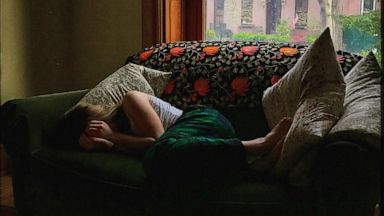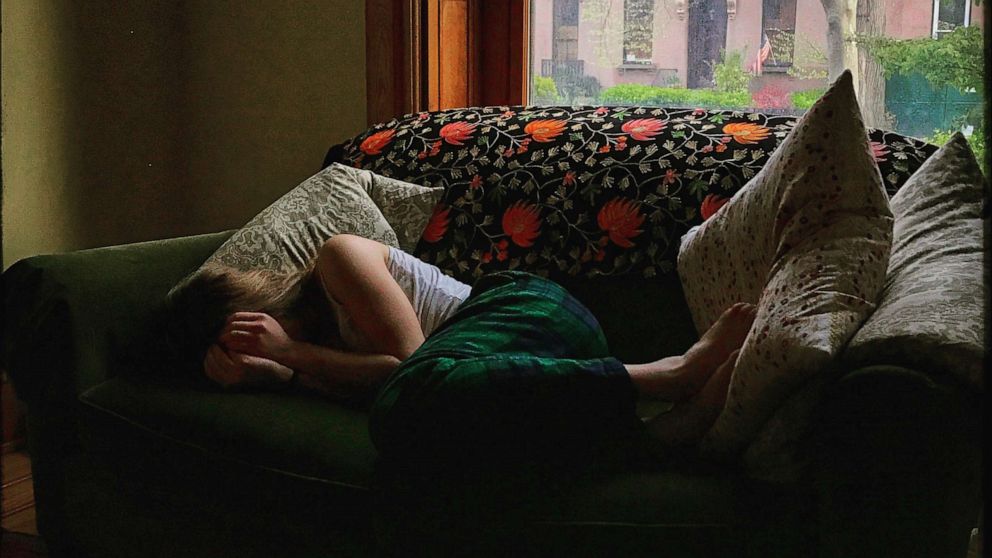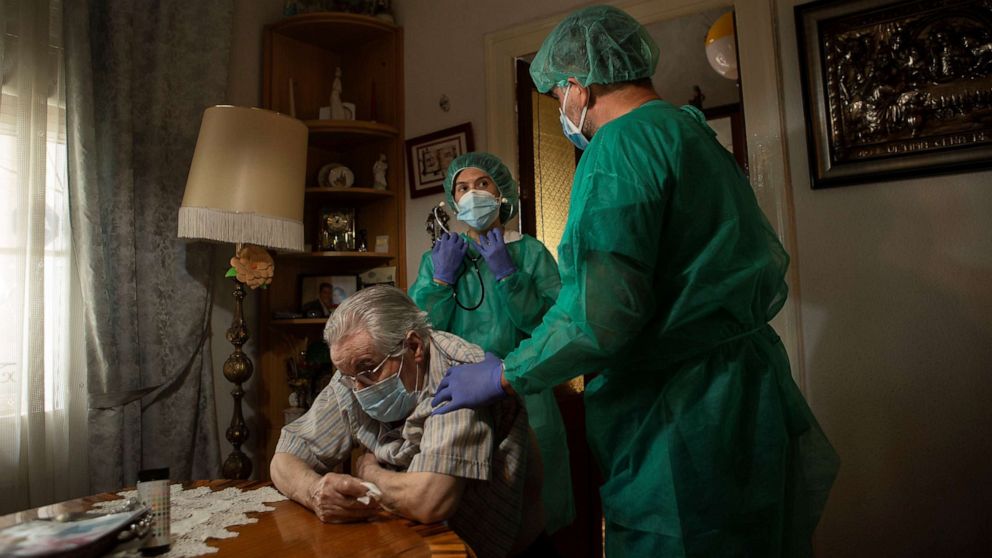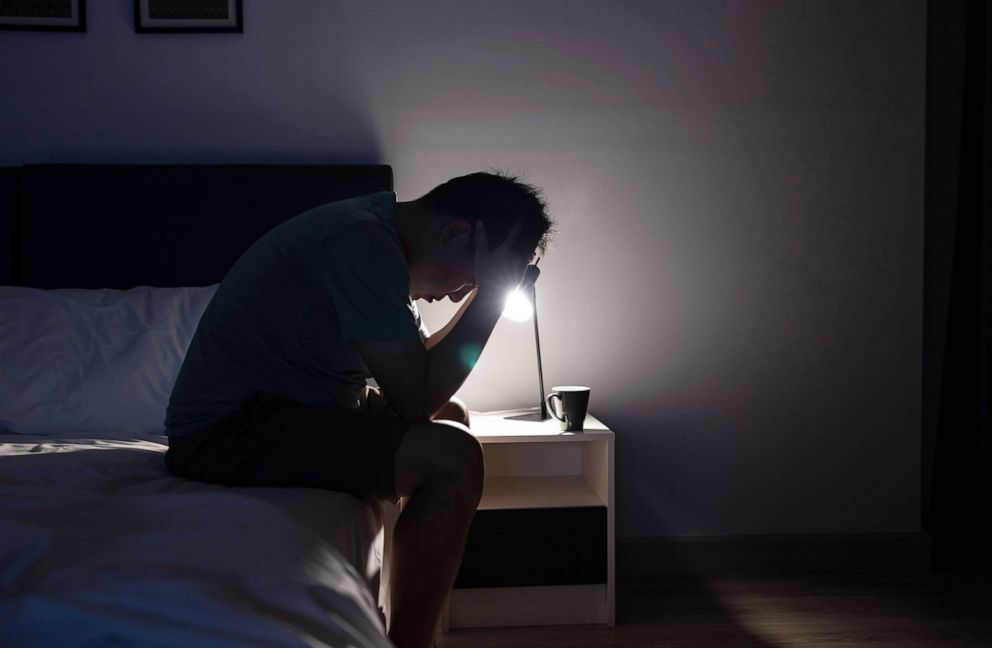
#Isolation, economic pressure and family conflict all are major contributors.

#Coronavirus: 18 months later
As the U.S. hits the grim milestone of 700,000 deaths, ABC News takes a look at the last six months of #coronavirus — how we got here, what went wrong and how it’s still impacting us all.
Early in the #COVID-19 #pandemic, the stay-at-home measures and disruptions to daily life that aimed to slow the spread of the #virus and save lives led many public health specialists to worry that the nation also could see an uptick in suicides, drug overdoses and #domesticviolence.
Nine months later, those grim predictions look like they’re coming true.
#JamesDonaldson notes:
Welcome to the “next chapter” of my life… being a voice and an advocate for #mentalhealthawarenessandsuicideprevention, especially pertaining to our younger generation of students and student-athletes.
Getting men to speak up and reach out for help and assistance is one of my passions. Us men need to not suffer in silence or drown our sorrows in alcohol, hang out at bars and strip joints, or get involved with drug use.
Having gone through a recent bout of #depression and #suicidalthoughts myself, I realize now, that I can make a huge difference in the lives of so many by sharing my story, and by sharing various resources I come across as I work in this space. #http://bit.ly/JamesMentalHealthArticle
“There is a #mentalhealth wave to this #pandemic,” Dr. Ken Duckworth, chief medical officer of the #NationalAllianceforMentalIllness, told ABC News. “We as a species don’t do well with uncertainty.”
The #pandemic, for many #Americans, has exacerbated already-stressful scenarios — deaths of loved ones, illnesses, loss of income — according to psychiatrists Thomas Holmes and Richard Rahe.
Additionally, stay-at-home orders and school closures — important actions to prevent #virus spread — created downstream consequences such as #socialisolation, eroding support networks and additional #financial strain.
All of these factors are contributing to more suicides, overdoses and violence, according to the #CentersforDiseaseControlandPrevention. And specialists warn that this #mentalhealth #pandemic within the #virus #pandemic also will disproportionately affect #Blacks, #Hispanics, the elderly, people of lower socioeconomic status of all races, and health care workers.

Many of these accelerating public health crises already were worsening before #COVID-19.
In 2018, the U.S had the highest age-adjusted #suicide rates since 1941. By June, a #CDC survey of 5,470 US #adults found that one-third reported anxiety or #depression symptoms. About 10% said they had considered #suicide during the last month, and the rate of suicidal thoughts was highest among unpaid caregivers, essential workers, #Hispanic or #Black respondents and #young #adults.
People age 18 to 25 may be the most affected group, Duckworth explained.
“We need to take a look at the age impact,” Duckworth added. “In the age where identity is developed, #young #adults are missing college.
The opioid epidemic, previously considered the greatest public health threat in the U.S., also has worsened since the #virus outbreak. After overdose deaths briefly plateaued in 2017 — stricter regulations of prescription drugs were enacted — deaths began creeping upward again because of illegal synthetic substitutes like fentanyl.
“We were making some improvement in terms of treatment options for opioid addiction prior to the #pandemic,” Dr. Harshal Kirane, medical director of Wellbridge Addiction Treatment and Research, told ABC news. “However, there were still major treatment gaps that have worsened now that we have a superimposed #pandemic.”
More than 40 states have reported increases in opioid-related deaths since then #pandemic struck, according to the #AmericanMedicalAssociation.
Overdoses — both fatal and non-fatal — have increased 20% compared with the same time period in 2019, according to the Overdose Detection Mapping Application Program.

A #nurse provides cares to a #patient during a house call visit in Barcelona, Catalonia, north eastern Spain, May 23, 2020.
“The incidence of first-time users is also on the rise,” Kirane added. “#Isolation, economic pressure and family conflict during quarantine are all factors for this.”
Reports of #domesticviolence are also are rising, with many experts worried the cases reported are but a small fraction of those happening. Just in New York City, “there has been a substantial increase in calls to the #domesticviolencehotline,” said Kelli Owens, executive director of the New York State Office for the Prevention of #DomesticViolence.
“The calls to the hotlines dropped in the first few weeks of the #pandemic, increased by 30% in April, and increased by 76% by August. They have remained elevated into September,” she added.
The United Nations warns that the #pandemic is likely to undermine efforts to end gender-based violence globally, while stay-at-home and #socialdistancing orders may effectively trap the abused with their abusers.
The #CDC recognized that violence is a serious public health problem. It affects people in all stages of life, and many of violence survivors suffer from long-term physical, #mental and emotional health problems.
“It is important to keep in mind the #domesticviolence is usually under-reported,” Owen added.
Public health specialists and policy makers are taking steps to try to address these alarming trends. For example, many states have eased restrictions for telehealth, making it easier to access a medical provider during a crisis. Some are making it easier to prescribe medication for opioid-use disorder without an in-person visit.

Over the summer, the #CDC released guidance for people experiencing abuse and for those coping with extreme #stress during the #pandemic. The #CDC recommends making a plan if you live in an unsafe home, practicing self-care as much as possible and trying to maintain virtual social connections with people outside your immediate home.
Community-level solutions should prioritize #young #adults, #racial and ethnic #minorities, essential workers and #adult caregivers, according to the #CDC, which said these efforts should include economic support, efforts to reduce stresses related to #racial discrimination, promoting community social connections and care for those at risk of #suicide.
“This #pandemic isn’t going anywhere,” Duckworth said. “My advice is: Lower expectations, stay connected with people, reach out for professional help when needed, don’t skip your flu shot and remain physically active. “If you or a loved one is experiencing suicidal thoughts, The #NationalSuicidePreventionLifeline provides 24/7, free and confidential support. Call 1-800-273-8255 for help. If you are a victim of #domesticviolence, call the 24/7 National #DomesticViolence Hotline at 1-800-799-7233. If you’re unable to speak safely, you can log on to thehotline.org or text LOVEIS to 22522. The Safe Center also has a 24/7 hotline that can be reached at 516-542-0404.For resources regarding #mentalhealthtreatment, the #NAMI HelpLine is a free, nationwide peer-support service providing information, resource referrals and support to people living with #mentalhealthconditions, their family members and their caregivers. Call 1-800-950-NAMI or text #NAMI to 741741.
Yalda Safai, M.D., M.P.H., a psychiatry resident in New York City, is a contributor to ABC News Medical Unit.



